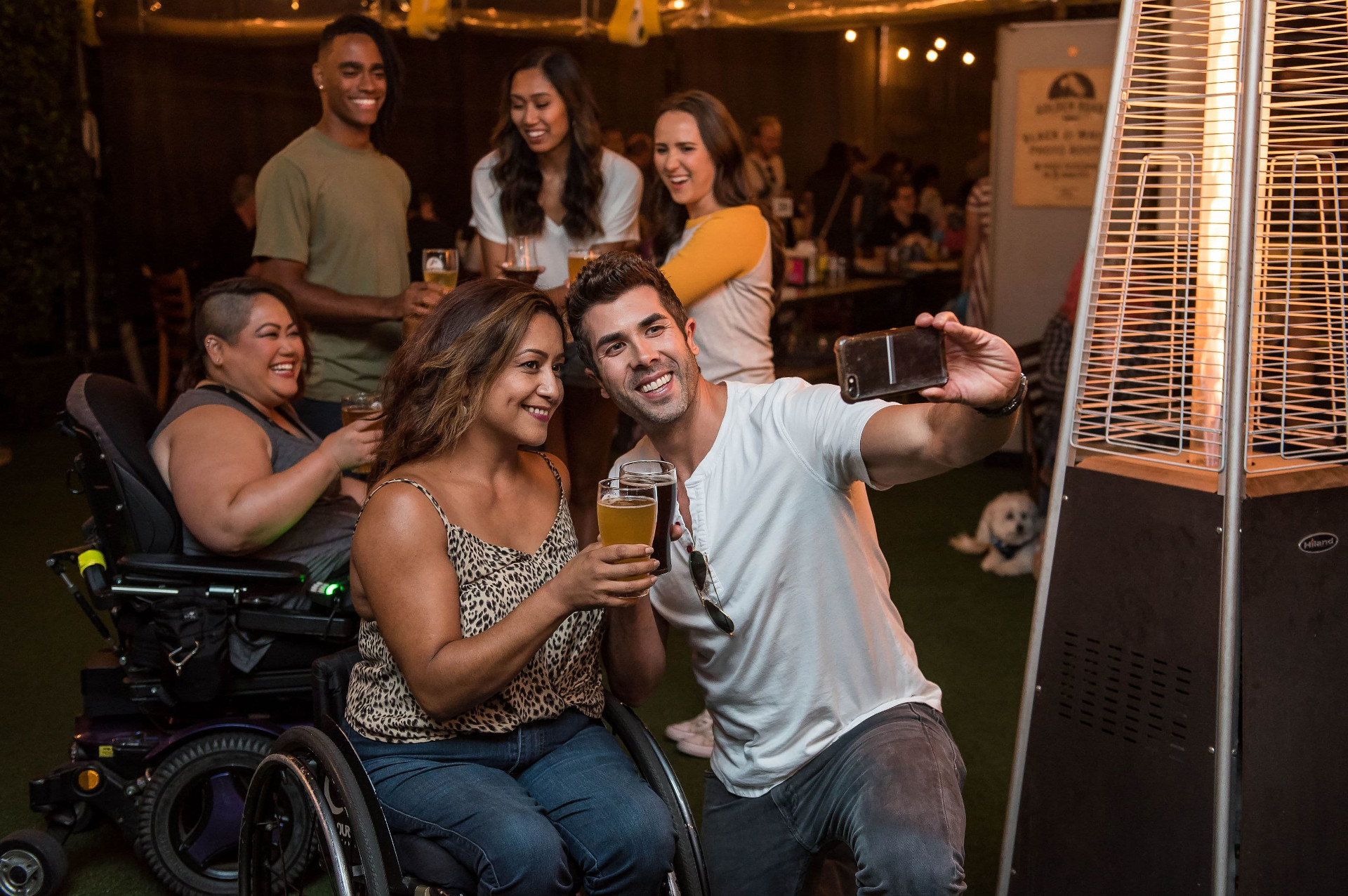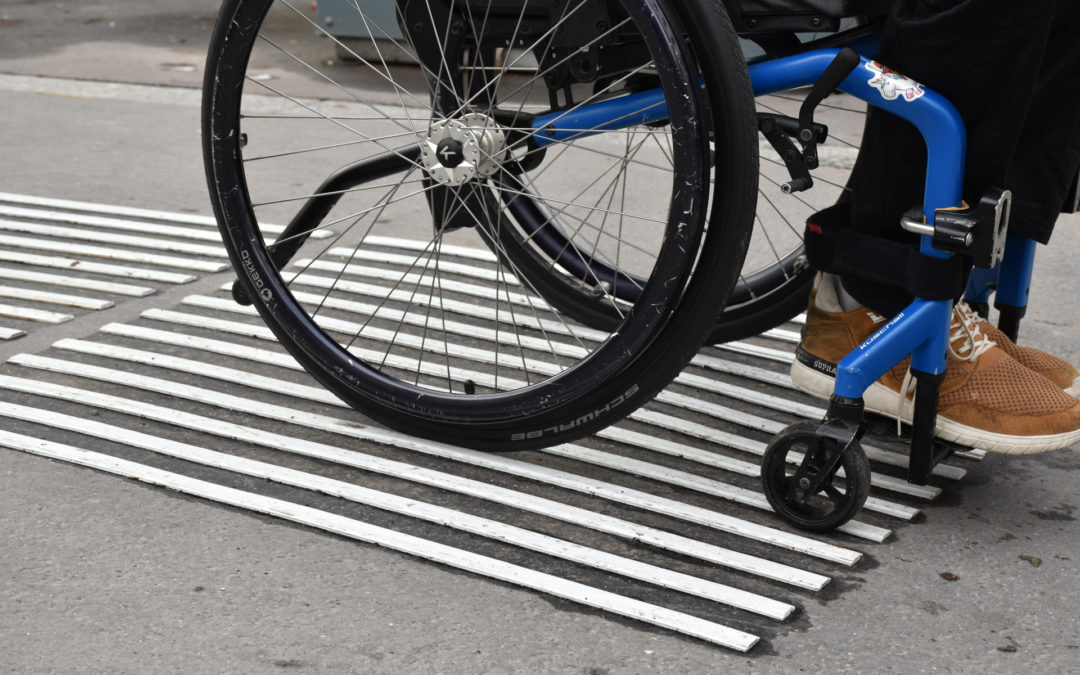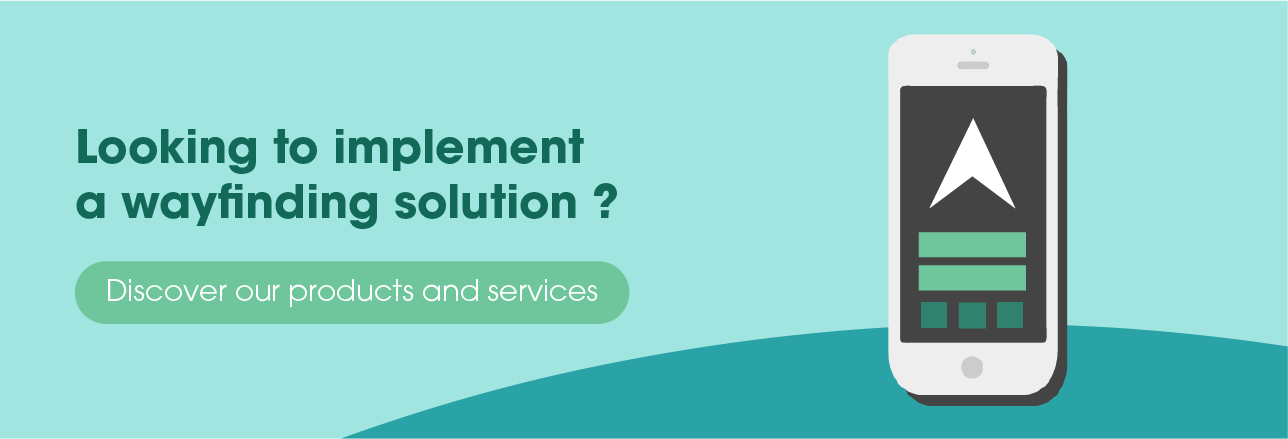
7 Tips to Make a Person with Disabilities Feel Welcome
- Stay natural
- Ask questions
- Don't think for them
- Offer your help, don't impose it
- Make sure you're talking to the person with disabilities before anything else
- Don't take offense if some behaviors seem strange to you
- Don't pet a dog without first asking his owner
Who hasn’t been uncomfortable dealing with a person with disabilities? We’ve all been afraid to drop a clanger, to be clumsy and to behave badly. It’s normal to feel disconcerted in a new situation when we don’t understand the appropriate codes. But it’s actually not that difficult. Here are a few tips that will work every time, regardless of the disability type of the person you’re talking with!
1. Stay natural
Alright, it’s easier said than done… But you need to realize that the person in front of you is above all a human being with the same needs as anyone. Meaning that past the initial moment of surprise, even the moment of panic (because this can also happen…), you simply have to say hello and start talking to the person in front of you.
2. Ask questions
Yes, it’s a new situation and yes, it’s normal not to have all the keys in hand. Simply ask the person you’re talking with what you can do for them. They know best how to explain it to you.
3. Don’t think for them
Because we want to do things right, we often tend to anticipate what a person with disabilities will say or do. But it’s a trap! There’s a good chance you’ll be wide of the mark concerning their expectations and this may cause frustration that could make the person with disabilities aggressive towards you! Give them time to express themselves.
4. Offer your help, don’t impose it
Some people with disabilities don’t dare to ask for help. You’ll make it easier for them if the offer to help comes from you. But do it in an open way so that the person you’re talking to can feel free to tell you if they need it or not.
5. Make sure you’re talking to the person with disabilities before anything else
If a person with disabilities is with someone like a caregiver, this doesn’t necessarily mean that they can’t communicate with you. It’s in fact rarely the case. But even if it was, it’s not a reason to ignore them in the conversation. Just speak directly to them. The caregiver they’re with will naturally take over if it’s necessary.
6. Don’t take offense if some behaviors seem strange to you
There’s nothing more normal than to feel disconcerted facing an attitude or a behavior that’s out of the ordinary. But you need to realize that some types of disabilities may be the cause and that it’s completely out of control. Try to disregard it and treat the person with disabilities as an adult no matter what.
7. Don’t pet a dog without first asking his owner
Obviously, this advice concerns every dog but it’s particularly the case with guide dogs or service dogs used for other types of disabilities. Petting them while working could distract them and thus put in danger the people they’re accompanying.
We hope these basic tips will enable you to feel more confident next time you’re dealing with a person with disabilities in your venue or somewhere else! You’ll find other tips adapted to specific types of disabilities such as 12 Tips to Welcome a Deaf or Hard of Hearing Person and 9 Tips to Welcome a Person with an Intellectual Disability.
Please keep in mind that there are trainings to help you and your personnel best assist customers with disabilities. Thanks to qualified organizations, you’ll be able to talk about dealing with people with disabilities without any taboos!
media

Some people with disabilities don’t dare to ask for help. You’ll make it easier for them if the offer to help comes from you.
writer

Lise Wagner
Accessibility Expert
stay updated
Get the latest news about accessibility and the Smart City.
other articles for you

Open Data Is Key to Fostering Universal Accessibility
Open data represents an opportunity for cities to reach universal accessibility. It shows the missing links of the mobility chain.
Our Audio Beacons Guide the Blind and Visually Impaired at the Helsinki Subway
The Helsinky subway improved their audio signage system by installing on demand and remotely activated audio beacons.
7 Good Reasons to Install Audio Beacons at Your Public Transport Network
Audio beacons are an efficient way to provide more autonomy to blind and visually impaired people. They can easily use public transport.

Will Remote Activation Become the Norm for Accessible Pedestrian Signals?
More and more cities like New York have been exploring remote activation to trigger accessible pedestrian signals.
share our article!
more articles

Disability Statistics in the US: Looking Beyond Figures for an Accessible and Inclusive Society
Disability Statistics in the US: Looking Beyond Figures for an Accessible and Inclusive Society Around 61 million adults in the United States live with a disability. Diving into disability statistics in the US will help us know exactly who is concerned and what...
Our Audio Beacons Guide the Blind and Visually Impaired at the Helsinki Subway
Our Audio Beacons Guide the Blind and Visually Impaired at the Helsinki SubwayOur audio beacons equip the new line of the Helsinki subway in Finland. They help blind and visually impaired people locate the points of interest of a station. For users with visual...

At What Intersections Should You Install Accessible Pedestrian Signals?
At What Intersections Should You Install Accessible Pedestrian Signals? When you install accessible pedestrian signals, you first need to ask yourself where exactly they are needed. Are there any intersections blind and visually impaired pedestrians particularly...

Invisible Disabilities: 80% of Disabled People Are Concerned!
Invisible Disabilities: 80% of Disabled People Are Concerned! Having a disability = using a wheelchair. That’s one persisting cliché! Actually, only 2% of people with disabilities are wheelchair users but 80% have invisible disabilities! What we mean by “invisible...
NEVER miss the latest news about the Smart City.
Sign up now for our newsletter.
Unsubscribe in one click. The information collected is confidential and kept safe.
powered by okeenea
The French leading company
on the accessibility market.
For more than 25 years, we have been developing architectural access solutions for buildings and streets. Everyday, we rethink today’s cities to transform them in smart cities accessible to everyone.
By creating solutions ever more tailored to the needs of people with disabilities, we push the limits, constantly improve the urban life and make the cities more enjoyable for the growing majority.


